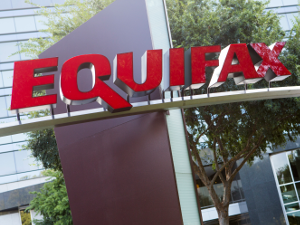On September 7, Equifax reported that its data system was breached and hackers stole personal information from over 143 million Americans. The hackers behind the attack, the company said, “exploited a U.S. website application vulnerability to gain access to certain files.”
According to Equifax, there was a bug in their open source software which was known prior to the hack. According to an article in Quartz, hackers could obtain information with “nothing but a browser, an internet connection, and some information about how the bug works.”
Financial experts and Equifax have urged consumers to protect themselves from identity theft in the wake of this hack. Equifax is providing a free tool for consumers to be able to check if they were affected by the recent breach on their website, requiring customers to enter their last names and six digits of their social security numbers.
Once this is done, the tool reports whether or not you might have been compromised, and is offering a free credit monitoring program. Reporters have asked consumers to proceed with caution, as Equifax is reportedly requiring enrollees to waive their right to sue the company.
There are other ways of securing your information if you want to play it safe:
Place a fraud alert on your credit reports.
According to experts, if you place a fraud alert on your credit report through one agency, it will show up on all three credit agencies holding your data, including Equifax. A fraud alert basically requires an extra level of security, forcing banks and other financial institutions to require additional screening before having access to your reports.
Review your credit report.
Thanks to federal law, each person is allowed a free credit report once per year. You can request your report (and print and save it) to see if there’s been any suspicious activity. If you see something that concerns you, be sure to report it to your bank and credit card companies. You can also go to the website authorized by the Federal Trade Commission for a free report: annualcreditreport.com.
Freeze your credit report.
This is the most drastic step you can take to protect yourself, because it prevents anyone, even you, from asking for a credit report. You won't be able to open a new bank account or credit card, but it also means nobody else can impersonate you and open new accounts under your name. You can unfreeze your credit report at any time, so it's useful as a temporary measure. You will need to freeze your reports with all three credit report agencies, not just one.
As with any data hack, it’s important to know where you stand and how to protect yourself.
